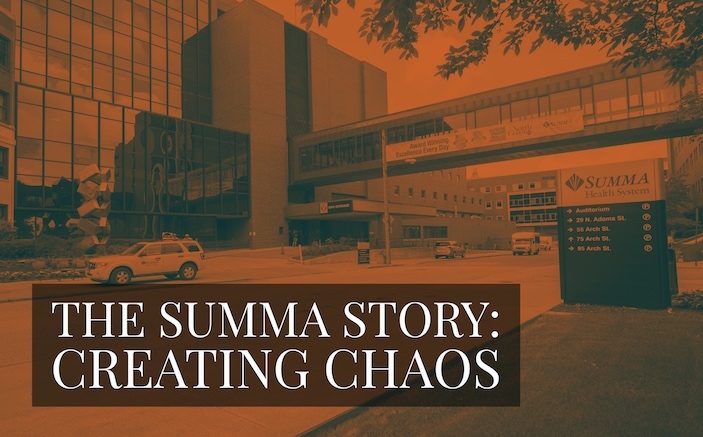As much as we can determine, the abrupt changes in ED management, IT processes, clinical care and resident supervision at Summa were highly disruptive. Disruptive enough to capture the attention of local news media and the national attention of ACEP, CORD, EMRA, AAEM, SAEM and the ACGME. Student EM rotations and residency interviews were canceled. Rumors suggested that the USACS recruitment offers for EM physicians got as high as $500/hour.
Without having validated information about the negotiations between SEA, Summa and USACS, the chaotic environment is surely not the way that an academic group goes about hiring new faculty for clinical care and resident supervision. All players should have had the honesty, good faith and common sense, to provide an orderly transition over time, if a change was necessary. This did not happen, resulting in a destructive ‘Bermuda Triangle’ with the residents squeezed in the middle.
The hospital and USACS CEOs were trained as physicians. The former once managed graduate medical education. The latter espouses the importance of EM physician ownership and management, and voices concern about EM physician vulnerability. I can’t help but see their actions, and its effects upon residents, students and seasoned teacher-clinicians, as the ultimate irony.
The founders of emergency medicine knew that the only way to develop our specialty was to work together and keep together. Our most valued resources were our medical students, residents, EMTs, and paramedics. We did everything to insure a sound, safe, and instructional clinical environment. We put extraordinary energy into developing residency programs and student rotations. We focused on developing faculty who could teach, mentor, and serve as role models. All this takes time. It cannot occur overnight, at the stroke of midnight on January 1.
I have spent my career working, teaching, and showing others how exciting and rewarding it is to be an emergency physician. Emergency physicians are not just commodities, chess pieces that can be moved by the institutional hierarchy at a whim from one square to another. I don’t think this is what Brian Zink meant when he wrote ‘Anyone, Anything, Anytime’*. The emergency medicine fight is not over—it is moving to a much different level. It’s time to assume our roles as the experts we have become, and take back our profession!
Click here to read more from the Deal Breakers: The Summa Story series.




1 Comment
“The emergency medicine fight is not over—it is moving to a much different level. It’s time to assume our roles as the experts we have become, and take back our profession!”
I have been involved in Emergency Medicine since 1976 and I cannot agree with you more in the above statement. The creation of corporate medicine funded by private equity groups driven by cheap money
from the root of the federal reserve has done visceral damage to our specialty. In over 40 years of being actively involved in our specialty we have seen many corporate attempts to take away what all of us primarily went into medicine to achieve, caring for acutely ill patients. Now it is all about how high can we drive our EBITDA and what multiple can we sell our company for.This is the known standard of the business world and not what our profession is about. Only we can control this individually, our groups, state organizations and national organizations. Unfortunately some of those organizations are already infiltrated
by these corporations and having steering influence on policy etc. The decisions being made by our colleagues are driven by the worries of the direction of healthcare, reimbursements resulting in “I gotta get out and get my money for what I have now because it may be worth less later” mentality. Of course that is exactly the story corporate medicine is telling the independents.